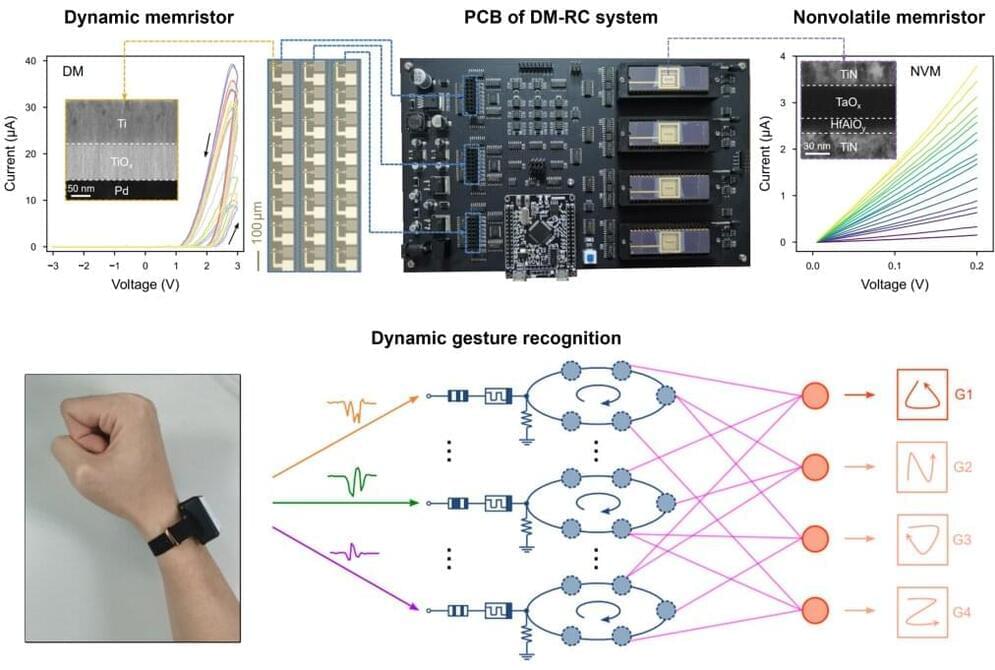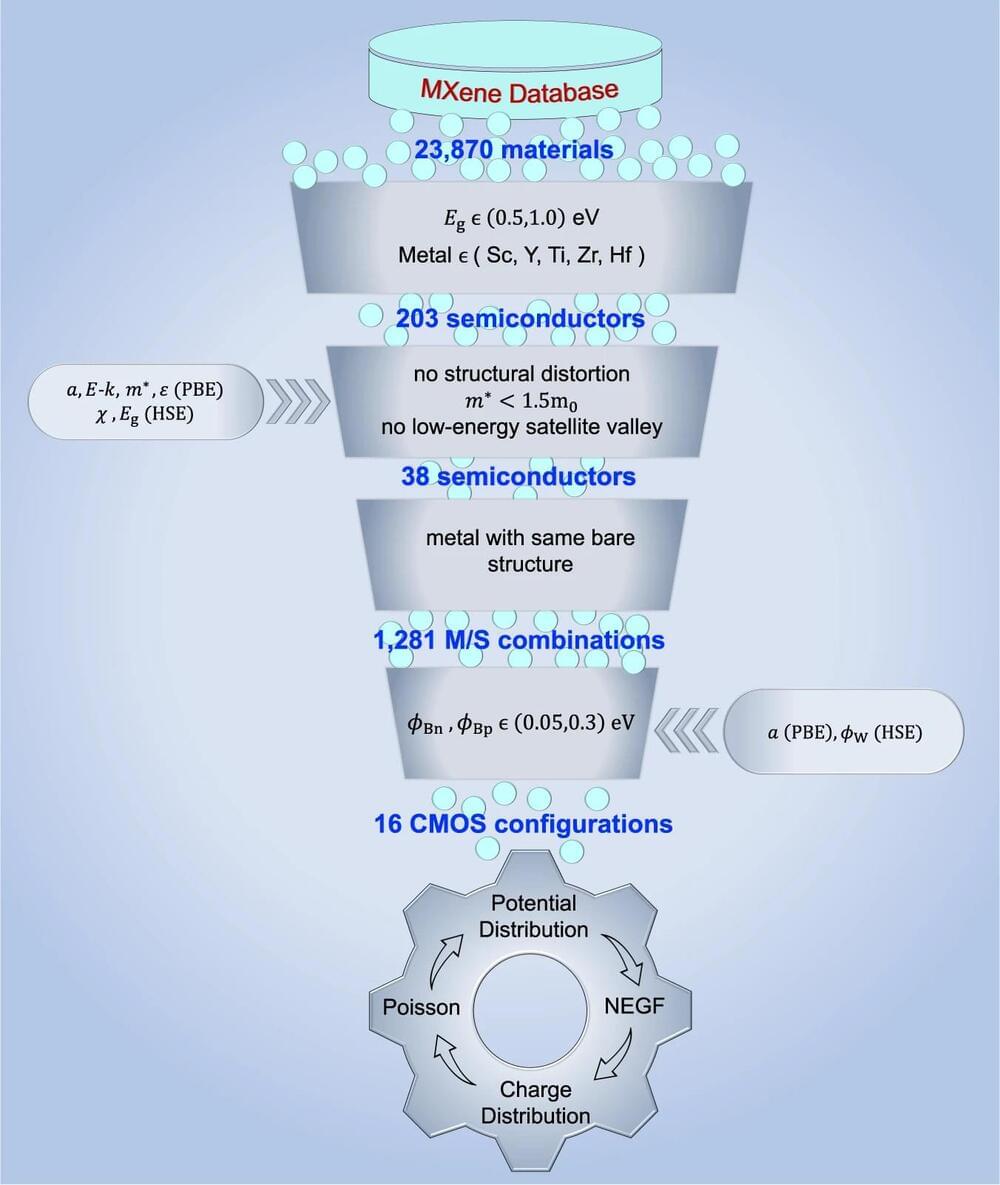Discovery of intriguing material behavior at small scales could reduce energy demands for computing.
As electronic devices become smaller and smaller, the materials that power them need to become thinner and thinner. Because of this, one of the key challenges scientists face in developing next-generation energy-efficient electronics is discovering materials that can maintain special electronic properties at an ultrathin size.
Advanced materials known as ferroelectrics present a promising solution to help lower the power consumed by the ultrasmall electronic devices found in cell phones and computers. Ferroelectrics—the electrical analog to ferromagnets—are a class of materials in which some of the atoms are arranged off-center, leading to a spontaneous internal electric charge or polarization. This internal polarization can reverse its direction when scientists expose the material to an external voltage. This offers great promise for ultralow-power microelectronics.








